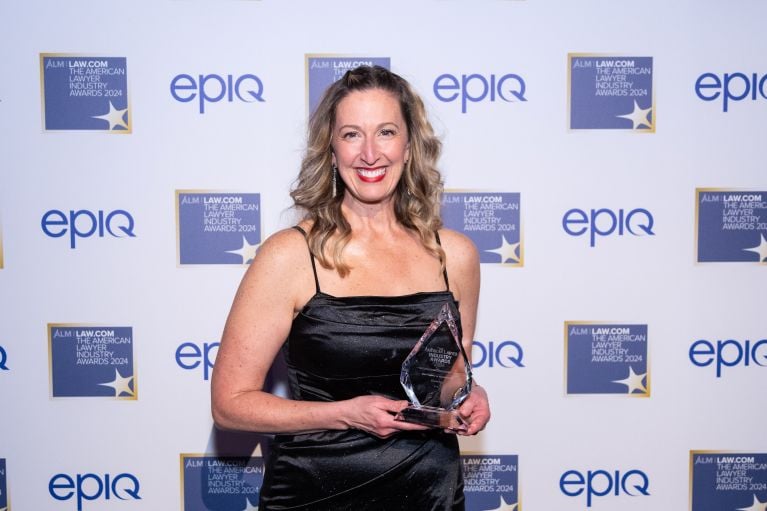Supreme Court Decision Curtails Prosecuters' Use of Honest Services Fraud Charges
White collar crime catchall limited by High Court's decision.
August 19, 2010 at 08:00 PM
6 minute read
The haziest of white-collar crimes, honest services fraud has long been a kind of catchall for prosecutors, a case they could make whenever something more objective might not stick on its own. It was the ultimate discretionary tool and could often be added to bolster other charges, or when a fact pattern simply didn't pass the smell test.
Honest services fraud, however, was often criticized as overly broad and dangerously vague. Prosecutors could invoke it any time a public official deprived constituents of fair representation or an executive breached a fiduciary duty, which is to say almost at will.
“If someone were to do banking or other personal business online while at work, you could argue that they are depriving their employer of honest services,” says Gary Brown, a shareholder at Baker Donelson. “That's how broadly this thing could be interpreted.”
The Supreme Court essentially resolved such fears in a pivotal June ruling that severely curtailed honest services fraud, albeit without striking down the doctrine entirely. The eagerly awaited decision gives white-collar defendants just a bit of relief.
“This is a big deal in the world of white-collar crime,” says Pamela Johnston, chair of the white-collar defense practice at Foley & Lardner. “This was not some obscure law; it was a well-used statute so it does narrow prosecutions going forward.”
Intangible Losses
Since the advent of the mail fraud law in the 19th century, a body of law gradually evolved that used the statute to attack public corruption. By the 1940s an honest services doctrine was well-established, and courts consistently interpreted mail and wire fraud as applying to intangible rights as well as to the theft of money and property.
As the number of honest services cases grew, critics increasingly complained about the concept's vagueness. A wave of honest services cases in the 1970s and early 1980s led the Supreme Court to step in. The court's 1987 decision in McNally v. United States held that the mail and wire fraud laws applied strictly to tangible property.
“Congress said, 'Well, OK. It wasn't a constitutional decision, it was just a statutory interpretation decision, so we can just legislate it how we wanted it,'” says Johnston. “So they passed the honest services statute in 1988.”
Honest services fraud is not a stand-alone crime, merely a definition that expands what constitutes mail and wire fraud. The amended language, however, formally and significantly expanded the law. This gave prosecutors dramatically increased leverage and honest services charges further proliferated in the following decades.
“When I watched some of the honest services prosecutions flowing out of the 2002 financial meltdown, I thought it was just a lazy prosecutor's way of throwing everything against the wall to see what sticks,” Brown says. “Why don't you just charge the people with what they did?”
The Supreme Court seems to agree.
Unconstitutionally Vague
The court's unanimous decision held that honest services fraud is too vague to be a crime unless a bribe or kickback was paid. Because clear bribery and kickback laws exist, the ruling effectively renders honest services fraud superfluous.
“You will not see even a small number of private sector honest services fraud cases going forward,” says Joshua Berman, a white-collar partner at Katten Muchin Rosenman. “I don't think the statute will be used that way. Does that give the general counsel, the general deputy counsel, breathing room? A little bit. But all the same conduct comes into play that compliance officers and counsel have to worry about.”
Brown says he was not at all surprised by the June ruling, particularly after the way the court responded to oral arguments.
“A couple of justices said, 'Look, the public has to be able to understand the law, and if they can't then it's going to be invalid because it's unconstitutionally vague,'” he says.
Private sector white-collar cases rarely rely on a single charge. Prosecutors would often bring a laundry list indictment, then lean heavily on the honest services allegation at trial because it was easier to prove. This, in part, was the situation in the case against former Enron CEO Jeffrey Skilling (See “Uphill Battle for Feds”). That tactic is now a thing of the past.
“The practical result of this ruling is that it's going to exclude marginal cases where prosecutors would have a tough time proving securities fraud, wire fraud or mail fraud,” Brown says. “They'll actually have to prove that the person committed some other crime. And I can't say I'm terribly upset with that.”
Prosecutors' Darling
The implications of the ruling are even more significant for public officials. The honest services fraud statute was the darling of the Public Integrity Section (PIS)–the arm of the Justice Department tasked with rooting out public corruption–says Berman, who spent two years as a PIS prosecutor.
“It was all they would use–the cases would essentially pivot on honest services fraud,” he says. “Now you have corruption prosecutors trying to figure out if they really have a bribery case, the elements of which can be much different than honest services fraud.”
Honest services cases could turn on more subtle transgressions, such as gratuities or conflicts of interest. To prove bribery, prosecutors must demonstrate an absolute quid pro quo.
“If you don't have bribery, you no longer have this statute to completely fall back on if it was just a conflict of interest, or an influence-type crime,” he says.
Of course, prosecutors still have a wide arsenal of corruption statutes at their disposal.
“This is not a mortal blow in any way to corruption cases,” Berman says, “but it takes out of the mix some cases in which the public official behaved unethically. These cases may smell bad to the public, but they don't necessarily violate a federal criminal statute.”
This content has been archived. It is available through our partners, LexisNexis® and Bloomberg Law.
To view this content, please continue to their sites.
Not a Lexis Subscriber?
Subscribe Now
Not a Bloomberg Law Subscriber?
Subscribe Now
NOT FOR REPRINT
© 2024 ALM Global, LLC, All Rights Reserved. Request academic re-use from www.copyright.com. All other uses, submit a request to [email protected]. For more information visit Asset & Logo Licensing.
You Might Like
View All
Elaine Darr Brings Transformation and Value to DHL's Business

How Marsh McLennan's Small But Mighty Legal Innovation Team Builds Solutions That Bring Joy

Democratic State AGs Revel in Role as Last Line of Defense Against Trump Agenda
7 minute read
'You Can’t Do a First Draft of Common Sense': Microsoft GC Jon Palmer Talks AI, Litigation, and Leadership
Trending Stories
- 1Elaine Darr Brings Transformation and Value to DHL's Business
- 2How Marsh McLennan's Small But Mighty Legal Innovation Team Builds Solutions That Bring Joy
- 3When Police Destroy Property, Is It a 'Taking'? Maybe So, Say Sotomayor, Gorsuch
- 4New York Top Court Says Clickwrap Assent Binds Plaintiff's Personal-Injury Claim to Arbitration in Uber Case
- 5'You Can’t Do a First Draft of Common Sense': Microsoft GC Jon Palmer Talks AI, Litigation, and Leadership
Who Got The Work
Michael G. Bongiorno, Andrew Scott Dulberg and Elizabeth E. Driscoll from Wilmer Cutler Pickering Hale and Dorr have stepped in to represent Symbotic Inc., an A.I.-enabled technology platform that focuses on increasing supply chain efficiency, and other defendants in a pending shareholder derivative lawsuit. The case, filed Oct. 2 in Massachusetts District Court by the Brown Law Firm on behalf of Stephen Austen, accuses certain officers and directors of misleading investors in regard to Symbotic's potential for margin growth by failing to disclose that the company was not equipped to timely deploy its systems or manage expenses through project delays. The case, assigned to U.S. District Judge Nathaniel M. Gorton, is 1:24-cv-12522, Austen v. Cohen et al.
Who Got The Work
Edmund Polubinski and Marie Killmond of Davis Polk & Wardwell have entered appearances for data platform software development company MongoDB and other defendants in a pending shareholder derivative lawsuit. The action, filed Oct. 7 in New York Southern District Court by the Brown Law Firm, accuses the company's directors and/or officers of falsely expressing confidence in the company’s restructuring of its sales incentive plan and downplaying the severity of decreases in its upfront commitments. The case is 1:24-cv-07594, Roy v. Ittycheria et al.
Who Got The Work
Amy O. Bruchs and Kurt F. Ellison of Michael Best & Friedrich have entered appearances for Epic Systems Corp. in a pending employment discrimination lawsuit. The suit was filed Sept. 7 in Wisconsin Western District Court by Levine Eisberner LLC and Siri & Glimstad on behalf of a project manager who claims that he was wrongfully terminated after applying for a religious exemption to the defendant's COVID-19 vaccine mandate. The case, assigned to U.S. Magistrate Judge Anita Marie Boor, is 3:24-cv-00630, Secker, Nathan v. Epic Systems Corporation.
Who Got The Work
David X. Sullivan, Thomas J. Finn and Gregory A. Hall from McCarter & English have entered appearances for Sunrun Installation Services in a pending civil rights lawsuit. The complaint was filed Sept. 4 in Connecticut District Court by attorney Robert M. Berke on behalf of former employee George Edward Steins, who was arrested and charged with employing an unregistered home improvement salesperson. The complaint alleges that had Sunrun informed the Connecticut Department of Consumer Protection that the plaintiff's employment had ended in 2017 and that he no longer held Sunrun's home improvement contractor license, he would not have been hit with charges, which were dismissed in May 2024. The case, assigned to U.S. District Judge Jeffrey A. Meyer, is 3:24-cv-01423, Steins v. Sunrun, Inc. et al.
Who Got The Work
Greenberg Traurig shareholder Joshua L. Raskin has entered an appearance for boohoo.com UK Ltd. in a pending patent infringement lawsuit. The suit, filed Sept. 3 in Texas Eastern District Court by Rozier Hardt McDonough on behalf of Alto Dynamics, asserts five patents related to an online shopping platform. The case, assigned to U.S. District Judge Rodney Gilstrap, is 2:24-cv-00719, Alto Dynamics, LLC v. boohoo.com UK Limited.
Featured Firms
Law Offices of Gary Martin Hays & Associates, P.C.
(470) 294-1674
Law Offices of Mark E. Salomone
(857) 444-6468
Smith & Hassler
(713) 739-1250






